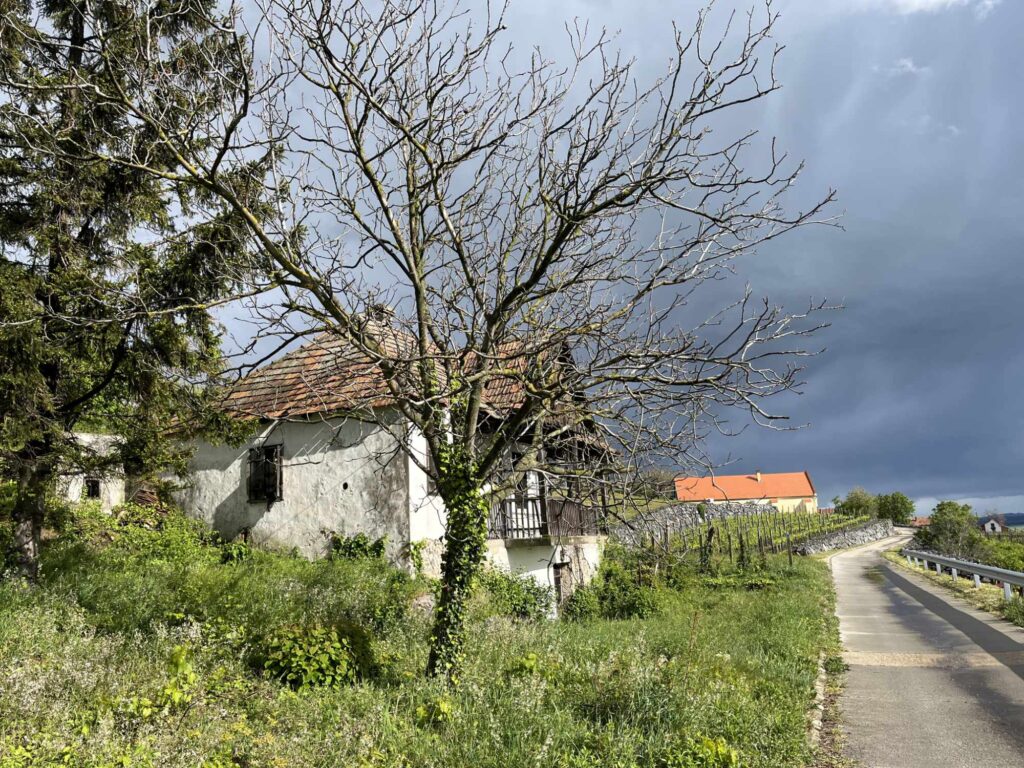Contents
Working Group 2: Foodscapes: Imagining Budapest’s zero-km local food system transition

Group lead:
Anna Wilczynska (LE:NOTRE Institute), Deni Ruggeri (University of Maryland) , Eszter Tóth (KulturAktiv), et al (TBC)
Our design challenge:
How might a future local food system in and around Vác help cultivating community and nature connections?
Our group will explore the possible transformation of allotment gardens in Vác from small-scale agricultural plots to crucial nodes of a local food system, emphasizing how these spaces can enhance nature experience, community connections and education. Starting from this crucial element of the local foodscape, we will draw up a conceptual framework of a future zero-km food system linked to a local food council and a food policy.
Local dynamics
Changing functions: In Vác, allotment gardens traditionally used for agriculture are increasingly threatened by urban expansion. This group will explore ways to protect and re-purpose these spaces as integral parts of the town’s green infrastructure, supporting biodiversity and serving as centers for local food production, awareness raising, capacity building or even job creation.
Decline in local cultivation: There has been a decline in the engagement of Vác’ residents with their allotment gardens. Revitalising these spaces could re-energise community interest and participation in urban agriculture, bridging generational gaps and fostering a deeper connection with food sources. It could be explored if production for export might be transformed into production for the city-region.
Potential for edible plants: Integrating edible landscapes into Vác’s urban environment offers an opportunity to establish these gardens as sources of local, fresh produce. They could also serve as dynamic educational spaces for sustainable living and agricultural practices, particularly for children and families.
Objectives
- Enhance urban nature experiences: Develop Vác’s allotment gardens into educational and recreational areas that provide immersive nature experiences, making them accessible green classrooms where both children and adults learn about sustainable food production.
- Promote sustainable local food production: Conceptualise a zero-kilometer food system for Vác.
- Strengthen community ties: Use these gardens to foster social cohesion and community spirit, creating vibrant hubs for interaction and cooperation among residents of all ages in Vác.
- Educate and engage: Implement educational programs tailored to Vác’s community that promote hands-on learning about agriculture, nutrition, and environmental stewardship, engaging children in particular to nurture a lifelong connection with nature and food.
Expected outcomes
- A food system community map
- Generating design ideas for transforming the local allotment gardens, and other productive areas, into productive hubs of the local food system, with educational, ecological, social and economic values.
- Drafting the components and elements of a local food system, including a governance model for a local food council. Reflections on how to bridge local and regional layers of the food system.
- Linking Vác to good practice cases and transfer of knowledge to the local community and local producers.
- Some food-related local interventions in cooperation with cross-cutting group 6 on democratic landscape transformation
